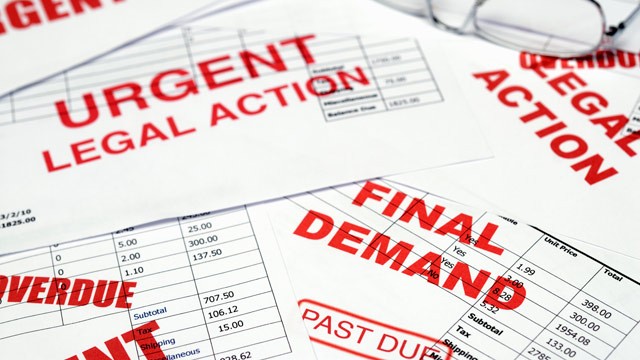Debt Collectors Can’t Pay Their Own Debt

Simple – you’re taken to task. The bill can go to collections, debt collectors can come after you and the mishap will be reflected in a negative credit score, forcing you to put debt management and credit repair plans into place to save face. In more dire situations, you might have to declare bankruptcy or seize some of your assets.
Yes, not being able to pay off debt according to the policy you originally agreed on can have dire consequences for your credit score and overall finances. But what happens when debt collectors can’t pay off their own debt? We ask that in lieu of two recent incidents where debt collection agencies have been handed hefty fines that they can’t pay, yet are allowed to remain in business. Here’s a closer look:
- RBT Enterprises was handed a $4 million fine from the Federal Trade Commission for a series of deceptive collection practices that are believed to have cost consumers over $1.3 in unethical fees. RBT Enterprises can’t pony up the $4 million, but the FTC is allowing it to stay in business, pending it pays a $100,000 fee to suspend the judgment and the owner turns over his assets. The FTC is also allowing RBT to stay in business pending suspension of its unethical collection practices.
- The second example involves ACE Cash Express, a payday advance loan company. The Consumer Financial Protection Bureau (CFPB) alleges that ACE used illegal tactics to force overdue borrowers into taking out more loans. As a result, the CFPB is ordering ACE to pony up $10 million – $5 million in customer refunds and another $5 million in penalties – to make amends, as well as discontinue their illegal tactics.
It seems a little odd and unfair that unethical debt collectors are allowed to stay in business after breaking so many rules and are given leeway when they can’t pay up as a result of their actions, especially when individuals faced with similar financial issues are judged so harshly and may have to spend years following a series of credit tips to repair credit in order to become a “good” borrower again.
But the aforementioned examples should highlight how careful you should be if collectors are coming after you. Remember, debt collectors can’t lie to you – that’s illegal. But apparently if they do lie and deceive consumers, they can still stay in business after a smack on the wrist…
For additional information on how to deal with debt collectors, please Sign Up for $0 below.

